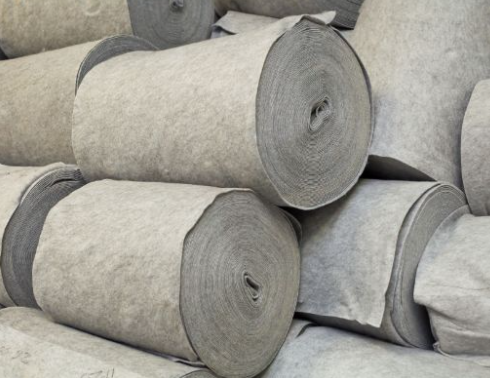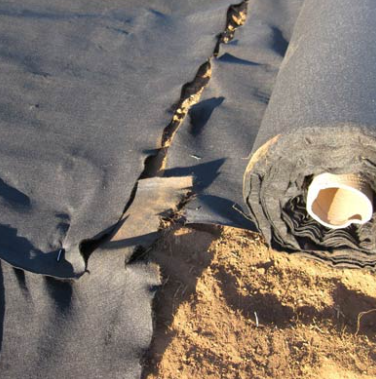- Understanding the Role of Geomembrane Liners in Waste Management
- Innovations in Geomembrane Liners for Water Management
- Geomembrane Liners: A Comprehensive Guide
- The Future of Geomembrane Liners in Civil Engineering
- Geomembrane Liners: Enhancing Landfill Stability
Manager:
WhatsApp:+86 177 0135 2670
Tel:+86 177 0135 2670
Email:marketing@okorder.com
Address:3rd Floor, No.2 Building, No.1 Sanlihe Road
How does geotextile fabric work?
Geotextile fabric, a multifunctional material often used in civil engineering and construction projects, plays an important role in soil stabilization, erosion control, drainage systems and environmental protection. Among the various types of geotextiles available, plastic geogrid, wholesale geogrids, fiberglass geogrids and glassfiber geogrids are the most prominent options. Understanding how these geotextile fabrics work is essential for optimizing their effectiveness in diverse applications.

The Basics of Geotextile Fabric
Geotextile fabric is a synthetic material designed for specific mechanical and hydraulic characteristics proper to geotechnical applications. These fabrics are composed of polypropylene, polyester or polyethylene polymers that can resist tough environmental conditions while performing reinforcement and separation functions within the structures formed by soils.
Plastic Geogrid: Reinforcing Stability
Plastic geogrids are unique among other types of’Geotextiles because they have high tensile strengths and withstand harsh environments. Their main purpose is to reinforce soil structures by spreading out applied loads over more area consequently reducing ground deformation potentialities for reliable stability. This lattice-like substance adequately confines soil particles thus impeding horizontal displacements as well as strengthening whole construction.
Typically using plastic geogrids increases the lifespan of road pavement by making it more resistant to rutting or cracking on the surface. Interacting with particles contained in soils, those nets make up a firm support capable of withstanding heavy traffic loads thus increasing roadway utilization duration.
Wholesale Geogrid: Cost-Effective Solutions
There are large quantities of wholesale geogrid obtainable at cheap prices which presents cost-effective solutions to different civil engineering projects. However inexpensive such type is; it nevertheless meets high quality standards providing good performance therefore preferred by contractors or engineers looking for affordable yet dependable geo-textile materials.
For instance these sorts of geogrids are used in reinforcement of soil, slope stabilization and erosion control. Wholesale geogrid is structured to distribute loads across the soil structures so as to mitigate tensile stresses hence upholding the stability of slopes, retaining walls, and earthworks.
Fiberglass Geogrid: High-Strength Reinforcement
For example, fiberglass geogrids are frequently employed in various geotechnical engineering applications where advanced reinforcement properties are required due to their outstanding strength and modulus values. These products consist of high quality glass fibbers which are impregnated with a polymer binder that makes them more durable and resistant to environmental degradation.
In such cases, fiberglass geogrids act as an effective support system for retaining walls, steep slopes and bridge abutments. With great rigidity they can bear heavy loads without loosing integrity leading to a reduced risk of deformity or failure.
Glassfiber Geogrid: Enhanced Performance in Challenging Environments
Glass fiber grids (also known as glassfiber) which have similar characteristics with fibreglass are specifically suited for areas having high moisture content or subjected to chemical attack. This product is highly resistant against corrosion; thus making it very appropriate for use in projects demanding durability and longevity.
In coastal engineering projects, glass fibre geogrids are widely employed for shoreline protection and erosion control because they stabilize soil structures thereby preventing displacement of sediments. As such these nets assist in mitigating wave forces on beaches including waves created by winds near shores; tides and storm surges which affect beach profiles.

Conclusion
Geotextile fabric including plastic geogrid, wholesale geogrid, fiberglass geogrid and glassfiber geogrid is a versatile choice for many different underground problems. These materials are applied in construction works enhancing the strength, long life and performance of civil engineering projects. The knowledge on how these fabrics work enables engineers and contractors to choose the right fabric for particular uses thus obtaining best results that can last for long.”
- Previous:Is geotextile a root barrier?
- Next:Why geotextile is used?
-
2024-06-12Asphalt fiberglass geogrid construction plan
-
2024-06-04Asphalt fiberglass geogrid construction plan
-
2024-05-21What is the disadvantage of geogrid?
-
2024-05-21What is the lifespan of geogrid?
-
2024-05-21What are the 3 main uses of a geotextile?






